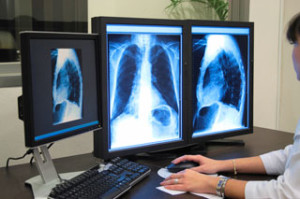Health informatics is an essential element of any health care system in primary medical care. Every Malaysian should have access to a health professional who is trained to provide quality primary medical care as their entry point to the system. Typically this provider acts as the principal point of consultation for patients within a health care system and refers to the respective specialists when necessary. It is commonly said that if the primary care fails, it eventually burdens the tertiary centres. Hospitals can no longer operate in traditional fashion if they are to accommodate this influx of patients while maintaining high quality levels of care.
Primary care undoubtedly bears the bulk of the burden. With the deficiency of primary care doctors inevitably comes longer wait times for patients and a significantly strained health system. By the end of 2010, there were approximately 33,000 doctors in Malaysia, and for a population of 28.35 million, that gives a doctor to population ratio of about 1:850. Malaysia is expected to achieve the 1:600 doctor patient ratio as recommended by the World Health Organization (WHO) by 2015. However these statistics differ when we take Sabah and Sarawak into account since most doctors today still prefer to serve urban communities.
For example in Canada, citizens have to wait as long as 10 weeks to get non-emergency treatment according to a new study by Canada’s Fraser Institute. Lack of sufficient office-based primary care also result in a significant strain on hospital emergency rooms (ER), because patients who cannot be seen by a primary care doctor are forced to seek primary treatment at an ER. This is spectacularly expensive for hospitals and increases wait times even further for emergency treatment.
This is where health informatics comes into play. Information and Communications Technology (ICT) has been referred to as a key instrument in healthcare delivery and public health internationally. When designed and implemented effectively, ICT can improve access for geographically isolated communities; provide support for healthcare workers; aid in data sharing; provide visual tools linking population and environmental information with disease outbreaks and is an effective electronic means for data capture, storage, interpretation and management.
It is widely recognized that the role of ICT in the near future of healthcare will be significant and that healthcare professionals will need to be computer literate in order to function effectively in an increasingly digital environment.
During the past few years, the achievement of health informatics in the health care system in Malaysia include the ability of the country to monitor and control the re-emerging communicable diseases, to respond in a more timely and effective manner (e-Notifikasi, e-Notis, MyTB) and also enabling remote areas in the country to gain clinical consultations via tele-medicine. These two great achievements have significantly improved the Malaysian health care services.
A few innovative providers have already thought ahead and began experimenting with new technologies that allow for more patients to be seen by fewer doctors. For example, the world of telemedicine is blooming. Some hospitals and primary care practices in western countries are trying to reduce costs and see more patients by implementing online portals that allow patients to submit questions about their ailments to doctors online, with promises of immediate responses. Patients can also request to video chat with a doctor, talk with a licensed physician on the phone, and send pictures of peculiar rashes, moles or other marks to be examined. While many of these experimental techniques are still in their relatively early stages, there is much more to be done in Malaysia.
Telemedicine is just one way the Malaysian healthcare institutions are trying to improve and increase productivity. Attempts at enhancing administrative processes, technical procedures, and IT capabilities are also underway.
Doctors, patients and administrators will all feel the effects of an overloaded system. Maintaining high standards of quality care will not be possible as long as we are rooted to traditional methods of health care delivery. However, as the determined innovators of healthcare are beginning to demonstrate in Malaysia, adjustment is indeed possible and we hope that all the sceptic claims that health informatics will mean the end of quality primary care will be ceased for a better and healthier system.
Dr. Dhesi BR is the founder of The Malaysian Medical Gazette and also a future public health specialist. He is currently pursuing a PhD in preventive medicine and public health. Learn more about him at The Team page.
Reference:
- Ammenwerth E, Brender J, Nykänen P, Prokosch HU, Rigby M, Talmon J.(2004): Visions And Strategies To Improve Evaluation Of Health Information Systems – Reflections And Lessons Based On The HIS-EVAL Workshop in Innsbruck. International Journal Of Medicine.( 2004), 73(6):479-491.
- Sabah State Technical Meeting No2: 2012: Laporan Bulanan Perjawatan (Kesihatan Awam) Bahagian Pembangunan Keluarga Keluarga, JKN Sabah: Edisi Jun-Oct 2012: Jabatan Kesihatan Negeri Sabah.
- Chaudry, B. “Systematic Review: Impact of Health Information Technology on Quality, Efficiency, and Costs of Medical Care,” Annals of Internal Medicine.(2006 :144:10), 742-752.
- Bailey Marshall, Duke University. Duke Global Health Institute; Department of Refugee and Migration Affairs
[This article belongs to The Malaysian Medical Gazette. Any republication (online or offline) without written permission from The Malaysian Medical Gazette is prohibited.]


